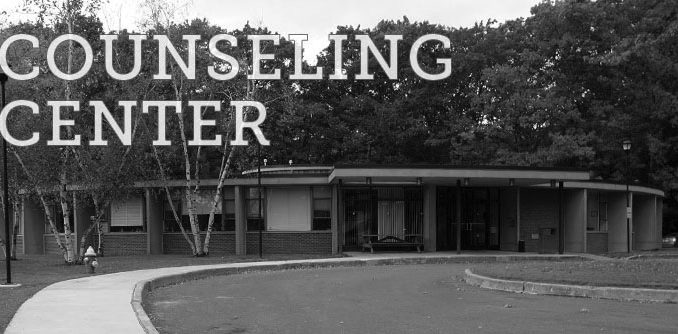
Campus News
Cady Sharp Kuzmich
Editor in Chief

Utility bills, grade-point-average anxiety, substance abuse, job insecurity, the stress that comes along with relationships and unexpected family tragedies–every student at SUNY Oneonta has their own unique, and oftentimes complex, story. The student-debt crisis is yet another heavy weight resting atop the shoulders of the nation’s youth. With all this in mind, it’s no wonder so many college students are crumbling beneath the weight. The bright side, however, is that this generation isn’t ashamed to ask for help when they need it.
Nationally, more and more college students are seeking professional counseling to address mental health issues. According to Dr. Fallon-Korb, the director of SUNY Oneonta’s Counseling Center, between 550 and 600 students seek counseling on SUNY Oneonta’s campus each year.
Still, a major portion of the student-body is reluctant to take advantage of the counseling services offered on campus.
Men, of all ages, do not seek out counseling services at the same rate as women. Dr. Fallon-Korb verified this, saying, “Yes, we do see more women than men. That’s a national trend in counseling, in and out of college.”
Why are some men so reluctant to seek out professional help when they struggle with many of the same stresses as female students?
The notion that men shouldn’t let their vulnerabilities show is one factor at the root of this problem. As Lea Winerman wrote in her article “Helping Men Help Themselves,” published by the American Psychological Association, “Try to imagine the Marlboro man in therapy. The image just doesn’t compute, does it? The Marlboro man wouldn’t admit to needing help. The Marlboro man wouldn’t talk about his emotions.”
SUNY Oneonta senior Taylor Hoysradt shared his thoughts on the societal pressures that may keep some men from seeking counseling help.
“Guys are pressured to just shake everything off like it’s nothing, and unfortunately that is extremely unhealthy. It takes a lot to go to counseling but it is nothing to be ashamed of.”
Dr. Fallon-Korb described the different approaches the Counseling Center is taking to reach out to the men on campus.
“We try to reach out to male students by being involved in men’s programming on campus and providing outreach services to men’s groups.” She added, “Two of our current counselors have expertise in men’s issues and offer programs in the residence halls on men and masculinity issues.”
Dr. Fallon-Korb also noted that “One of our counselors is very involved with the recognized Greek programs and advises a recognized fraternity, Alpha Phi Delta.”
She explained, “The idea behind outreach is that if the student gets to know us, it helps them to feel more comfortable talking to us.”
According to Dr. Fallon-Korb, “several of our staff are on the advisory board for the Gender and Sexuality Resource Counsel and have been active in helping to make sure that men’s issues are represented in that office’s programming.”
Dr. Fallon-Korb detailed some of the online resources the Counseling Center has made available to men who might be in the preliminary stages of seeking help, saying, “We make sure our website has articles and links for men to try and make sure the self-help materials we offer address men’s-specific issues. For instance, we have links to articles for men about depression, body image and men who have been victims of sexual assault. Men and women experience both these issues differently and so we make sure that we address the range of student concerns and experiences through our website.”
Dr. Fallon-Korb explained the Counseling Center’s approach to reaching out to students who may be reluctant to seek help on their own, even though they might benefit from talking with a professional counselor.
She says, “Outreach is when we offer workshops or psycho-educational programs to the campus. We offer a variety of topics and usually do this at the request of a residence hall, class, campus club, etc. We do homesickness workshops, stress management workshops, introduction to the Counseling Center talks, talks about alcohol & drug use, suicide prevention talks, etc. It’s a way for people to get to know the counselors and to reduce the stigma about going to the counseling center. It is also a way to help students prevent mental health concerns.”
Still, she recognizes that it is ultimately up to the individual to seek help for themselves. “Unfortunately, we can’t always help someone who doesn’t want help,” she said.
Dr. Fallon-Korb explained that the college can step in under extreme circumstances. “If a student were to demonstrate that they might be a danger to themselves or others, the college can require that the student attends an assessment meeting at the Counseling Center or with the mental health provider of their choice–just to make sure they are safe and to help them get into counseling if they want services.” Still, she says, “the nature of therapy is such that if someone doesn’t want to change or doesn’t want help, we can’t make them.”
For students who may be concerned about the well-being of another student, Dr. Fallon-Korb explained that “the Counseling Center offers consultations and we can help coach people to be more effective when they talk to the person they are worried about.”
Fallon-Korb sympathized with students, saying, “It is hard enough to be a student with classes and all the other life events that occur while people are in college. The college doesn’t want students walking around worrying if their friend is safe or not. That’s a big burden for a student to carry. That’s why we do consultations at the Counseling Center.”
While some men may remain hesitant to take the often frightening first steps into the Counseling Center, many others have bravely overcome suffocating societal pressures in order to help themselves.
Leave a Reply